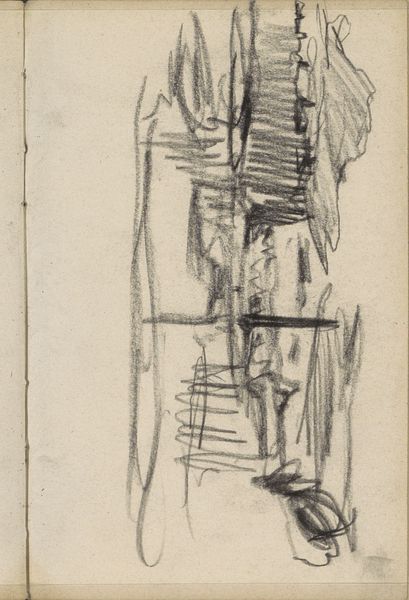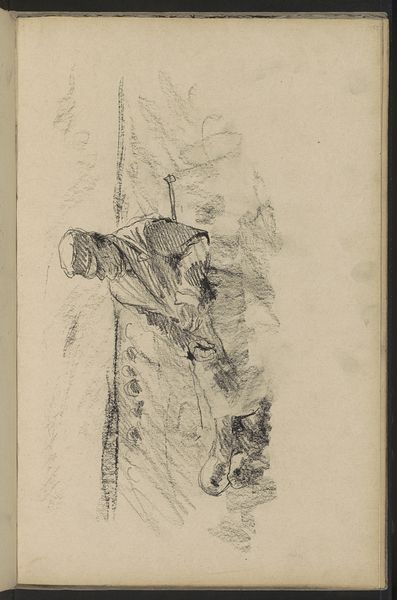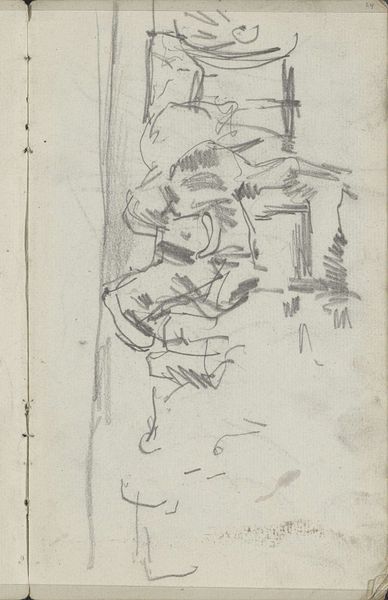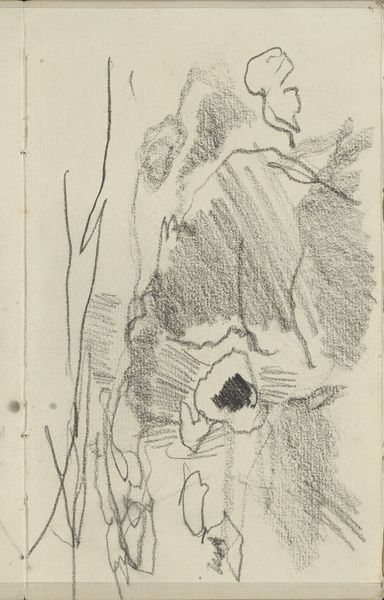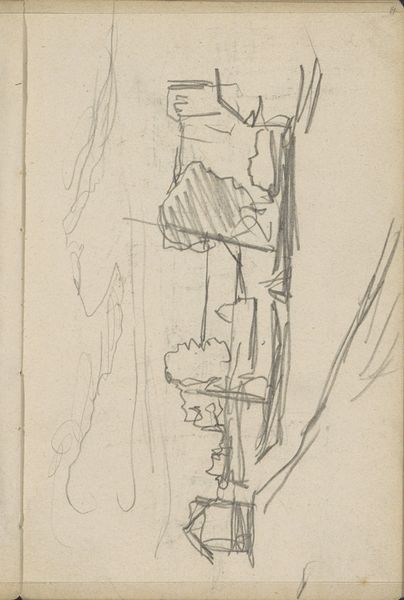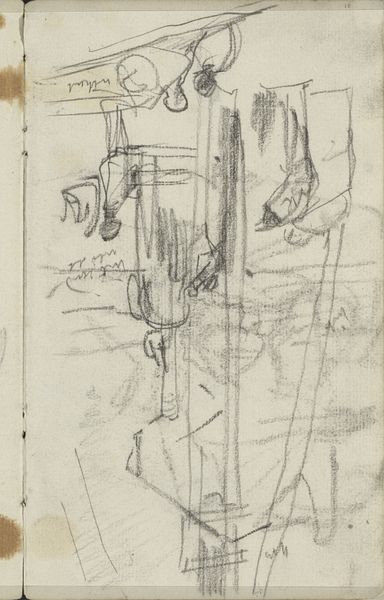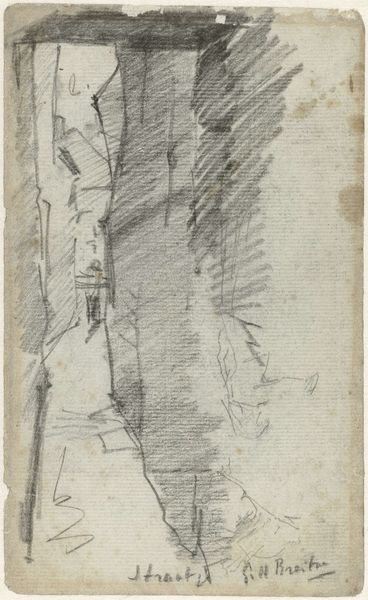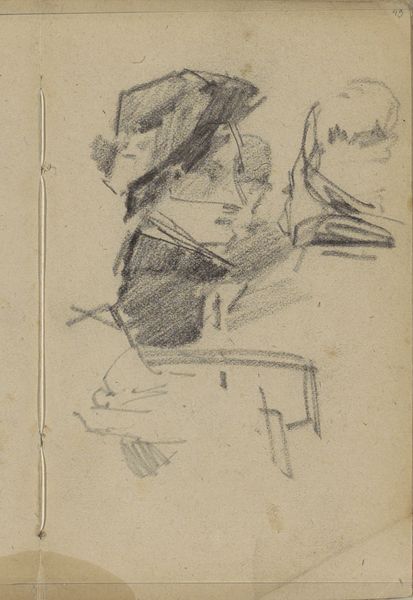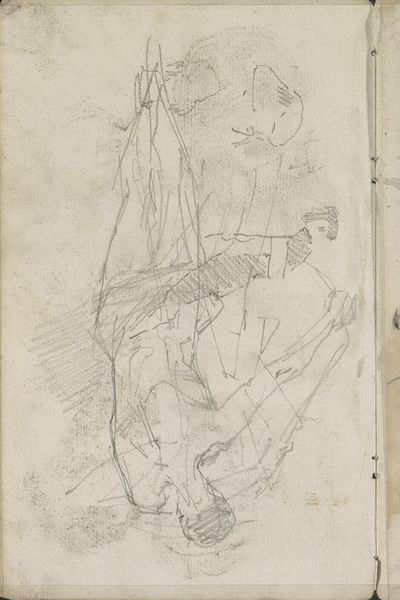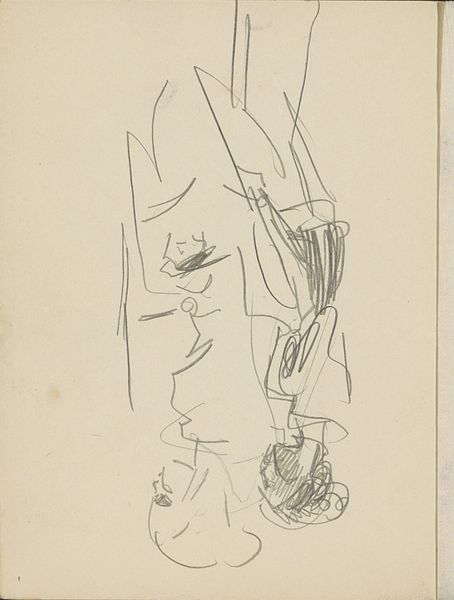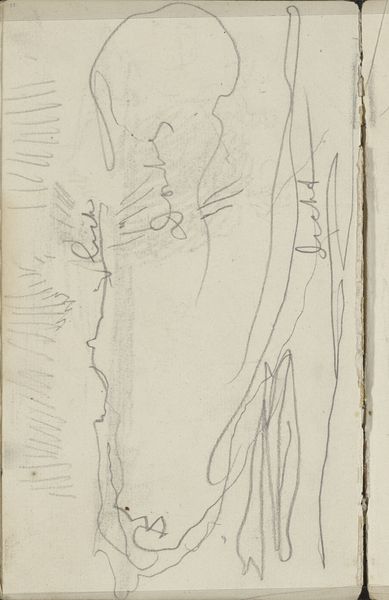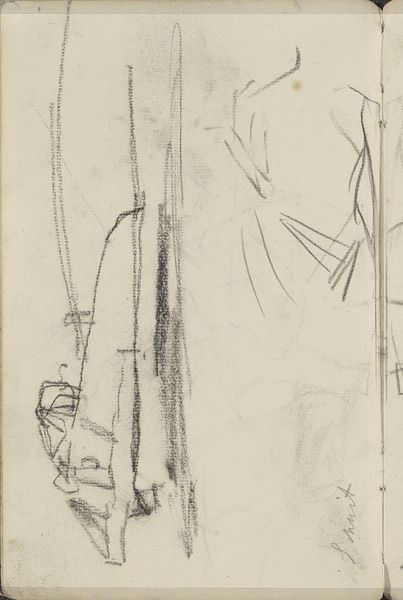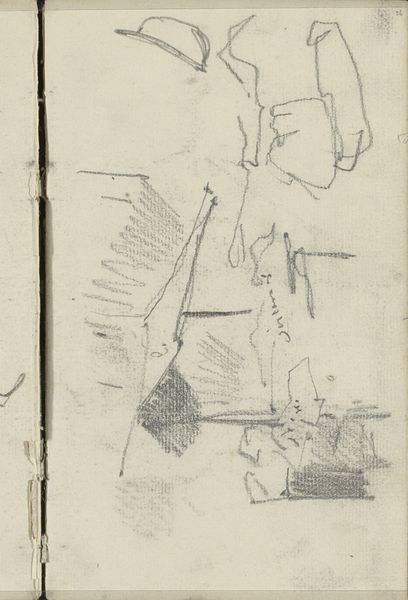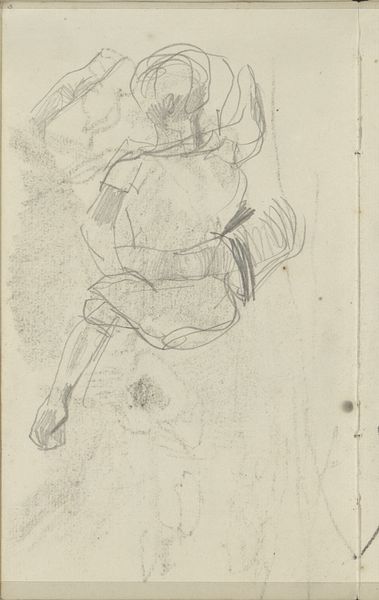
drawing, pencil, graphite
#
drawing
#
quirky sketch
#
impressionism
#
incomplete sketchy
#
landscape
#
personal sketchbook
#
idea generation sketch
#
sketchwork
#
ink drawing experimentation
#
sketch
#
pen-ink sketch
#
pencil
#
graphite
#
sketchbook drawing
#
storyboard and sketchbook work
#
sketchbook art
#
realism
Copyright: Rijks Museum: Open Domain
Curator: This is a drawing titled "Landschap," which translates to "Landscape," by George Hendrik Breitner, likely created between 1881 and 1883. It's currently held at the Rijksmuseum. What strikes you first about it? Editor: The raw immediacy. You can practically smell the graphite and feel the roughness of the sketchbook paper. It’s less a finished piece and more a record of a fleeting moment, an impulse captured. Curator: Precisely! This drawing provides insight into Breitner's working method. The rapid lines and sparse shading suggest he was more interested in capturing the essence of the landscape, maybe the mood or a certain atmosphere, rather than photographic detail. Notice the quick, almost scribbled, depiction of the tree. Editor: It's fascinating to consider the labor involved, though. This isn't about precious materials; it’s about accessible tools – pencil and paper – enabling quick and repeated explorations. We see evidence of thought happening in real time through the pressure of the pencil on paper. Curator: Definitely. While it may appear casual, that very casualness communicates a powerful authenticity. I find it intriguing how the visible process connects us, both intellectually and emotionally, with the artist's mindset as he surveyed the world before him. A landscape imbued with the psychology of observation, wouldn’t you agree? Editor: Agreed, it pushes back against the notion of art as solely refined execution. Instead, it puts value in process and the artist's working life, revealing the sketchbooks' vital role. What does this quick study tell us about how the image becomes an artwork? Curator: A wonderful point, as that tension informs Breitner's own identity, the artist's gaze grappling with a very specific Dutch landscape in its period, revealing social change in an image... Perhaps the city encroaching on a rural scene? This type of rapid sketching was, in its own way, revolutionary for its time. Editor: Ultimately, this piece encourages us to reconsider our expectations of what constitutes "art." Maybe true value lies not in its aesthetic perfection, but its ability to capture an honest moment of creative labor. Curator: A great reminder. Thank you. Editor: Thank you.
Comments
No comments
Be the first to comment and join the conversation on the ultimate creative platform.
